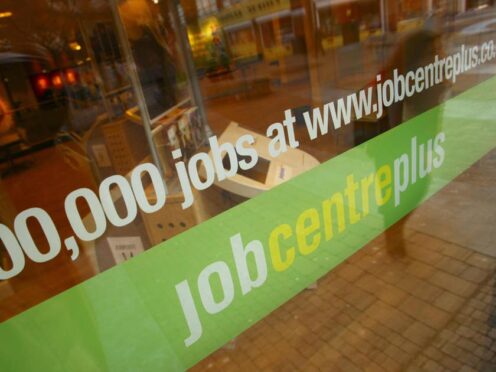
A split-government system to tackle unemployment and child poverty is failing thousands of families, a leading think tank has warned.
The Institute for Public Policy Research (IPPR) said tens of thousands of households will remain in poverty due to the lack of cohesion between the UK and Scottish governments.
In a new report, it calls for “fundamental” change, including the devolution of all employment support powers.
While the report said Scottish Government initiatives are going in the right direction, it warned programmes such as No One Left Behind and Fair Start Scotland are not yet meeting their ambitions and are struggling from a lack of scale.
The aim to help 12,000 parents into sustained employment, for example, may require a 200% increase in the number of parents entering work each year, the report said.
It also said the split responsibilities between the two governments are limiting the scale and reach of devolved strategies.
This is because most people looking for work are doing so through the UK Government’s Jobcentre system, which the IPPR states is often more “punitive than supportive” in its approach.
The report found just 3% of those looking for work in Scotland were enrolled on the devolved programmes in the most recent quarter.
The IPPR said the policy and administrative responsibilities of the Jobcentre should be handed to Scotland to make real progress.
Director Philip Whyte said: “The current system is arguably failing countless people who are trapped between a devolved system that suffers from a lack of scale and a reserved system that is more often punitive than supportive.
“While devolved programmes show signs of success – but could yet do more – ultimately they are held back by a responsibility being split across governments and a reserved Jobcentre system which is more often focused on compliance than helping people reach their full potential.

“A reformed system – through increased powers – would be the next natural step in delivering a system that is person-centric and works towards positive outcomes, so that more people can enter, stay and progress in meaningful work.
“That’s not just good for individuals, but also good for the economy.”
Fair work minister Gillian Martin said: “This call for all employment support powers to be devolved reflects the Scottish Government’s long-standing position.
“Securing the full range of powers over employment and employability would enable us to fully implement policies which best meet Scotland’s distinct needs and deliver services which have the interests of users at their heart.
“I welcome this additional evidence that our employability services are highly valued. The number of accredited real Living Wage employers in Scotland exceeded 3,400 last year…
“Scottish Government support contributes to nine in 10 people being paid at least the real Living Wage.”
A UK Government spokesperson said: “Poverty rates in Scotland are falling for adults and children compared to 2010, and we continue to help families with cost of living support worth an average of £3,800 per household.
“Work is the best way to secure financial security which is why we are investing billions through our Back to Work Plan, increasing the National Living Wage, and cutting taxes for 29 million hardworking people.
“Jobcentres across Scotland continue to offer personalised support, reflecting people’s skills, circumstances and work history, and since April 2021 they have delivered over 19,000 on the job placements so even more people can secure long-term financial security through work.”

Enjoy the convenience of having The Sunday Post delivered as a digital ePaper straight to your smartphone, tablet or computer.
Subscribe for only £5.49 a month and enjoy all the benefits of the printed paper as a digital replica.
Subscribe